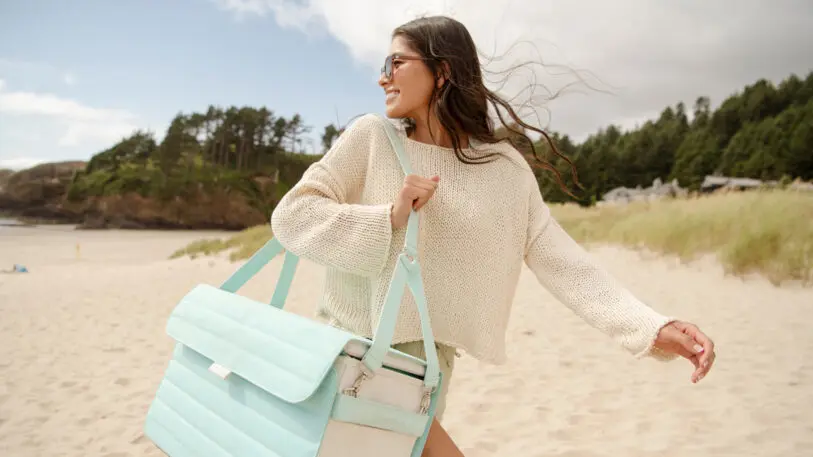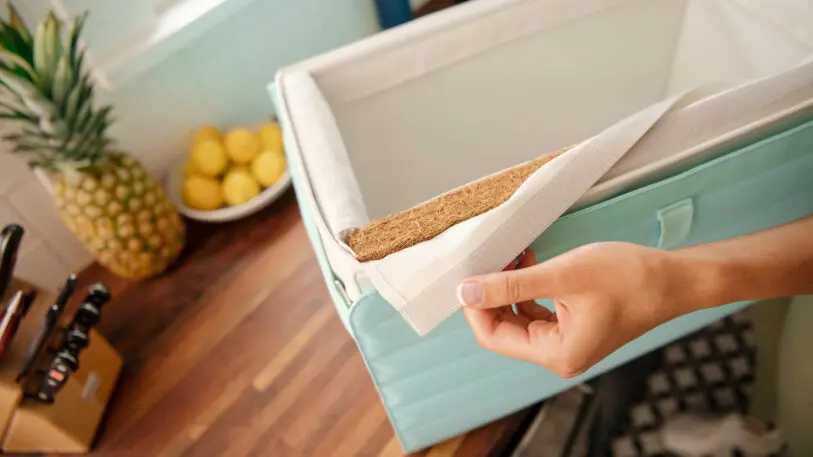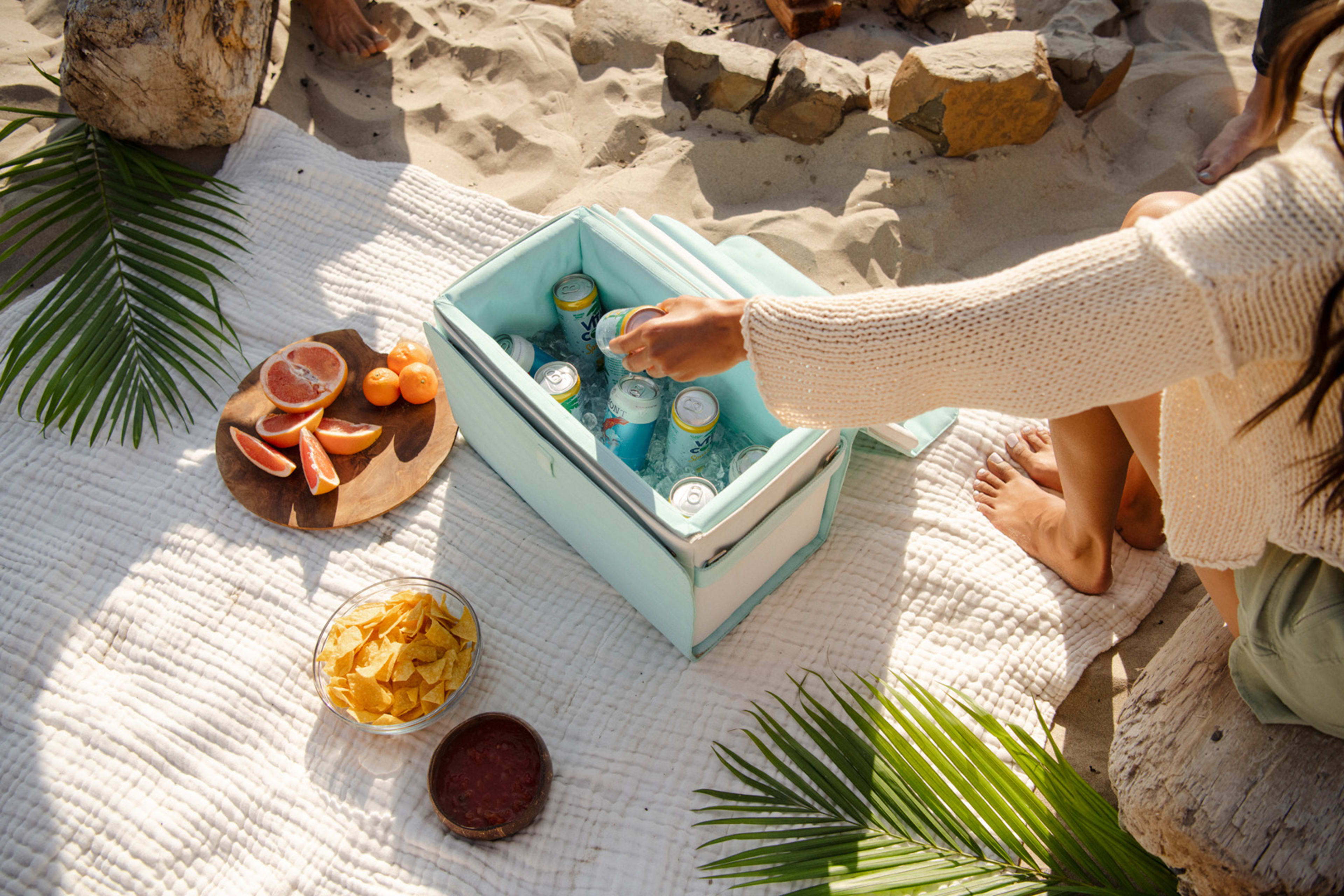Coolers are a wonderful invention, allowing us to tote our beer and ice cream on all our summer adventures. But they also leave a lot to be desired. They tend to be big, heavy, and bulky; they’re also insulated with plastic foam that isn’t good for the planet.
A startup called Nutshell Coolers has redesigned the cooler to solve these problems. The company invented a new form of insulation made from upcycled coconut husks, which they claim performs as well as the synthetic insulation in competing coolers from Yeti, Coleman, and REI—but will biodegrade at the end of its life. The company partnered with Box Clever, the design firm behind products like Away suitcases, Caraway cookware, and Eddi handsoap, to incorporate this insulation into a lightweight, collapsible cooler that looks like an oversized purse, in trendy colors like sky blue and slate. It’s part of a broader rethinking of everyday goods to be gentler on the planet, from yoga pants made from plants to reusable trash bags.

[Image: Nutshell Coolers]The pair met as Standford graduate students. He specialized in design, and she specialized sustainable development. As part of their coursework, they partnered on a project to help fishermen in the Philippines, who were struggling to keep their fish fresh. These fishermen used styrofoam containers but they were not particularly effective, as they degraded over time. Plus, styrofoam is bad for the environment: It does not biodegrade, it releases gases that depletes the ozone layer, and it takes up a lot of room when it is shipped, increasing its carbon footprint.
Together Cutler and Mekler searched for a better alternative. As they drove around the Philippines, they noticed that the country was full of coconut trees and coconut farms. They began to explore academic research about the coconut plant and discovered that coconut husks have insulating qualities. “The husk is full of air pockets, which traps air and insulates, much the way that foam insulation works,” says Mekler. “But coconuts are biodegradable and widely abundant. At coconut farms, farmers have piles of these husks that they simply burn after they have removed the coconut meat and water. This burning produces carbon emissions.”

That’s when the founders reached out to Bret Recor, founder and creative director of the design studio Box Clever. They floated their idea for a sustainable, collapsible cooler. Recor was interested in the coconut husk insulation, and wanted to see how it compared to other insulation on the market. “We didn’t want to create a product that performed less effectively than what is already on the market,” he says. “Bringing an ineffective product into the world is an inherently unsustainable thing to do, because it will ultimately contribute to waste.” But when they submitted the coconut insulation to third-party testing, they found that it could keep contents at 25 degrees Fahrenheit for 48 hours, which is on par with other coolers on the market. Recor was sold.

Cutler says they decided to launch the product on Kickstarter, since the platform is good at connecting products to passionate early adopters. He believes that the cooler will resonate with consumers who care about sustainability and also spend a lot of time outdoors. After just a few days, the project has already raised over $80,000 (the original target was $30,000). Nutshell Coolers will remain on Kickstarter for a month, with early bird pricing of $169, a 32% discount from the retail price. Units will begin shipping in the spring, ready for cooler season in 2022.
Recognize your brand’s excellence by applying to this year’s Brands That Matter Awards before the early-rate deadline, May 3.
